cat leukemia vaccine age
If your older feline companion tests positive on the snap test. Oncornaviruses are a group of viruses some infecting humans some infecting animals that cause development of cancers among other effects.

Focus Cat Vax 3 Plus Felv Vaccine 1 Dose With Syringe On Sale Entirelypets Rx
Your veterinarian is your best resource for figuring out the best vaccine routine for your feline family member but this chart will help you understand the basics.
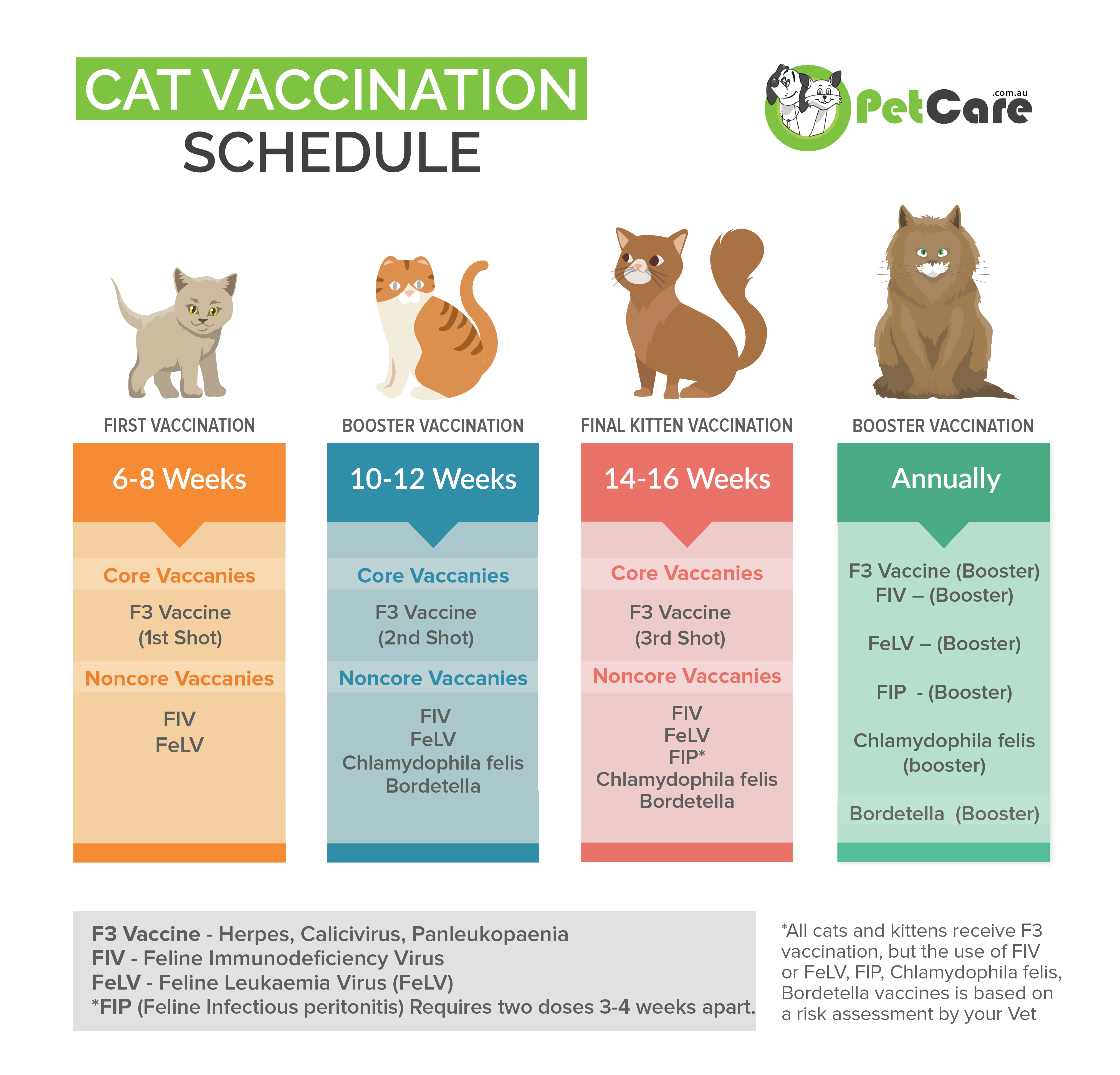
. A kitten should be vaccinated around nine weeks of age with the important second dose being given at 12 weeks. Your kitten will actually need a few doses of these vaccines until hes about 4 or 5 months old. Once a cat has been diagnosed with FeLV careful monitoring of weight appetite activity level elimination habits appearance of the mouth and eyes and behavior is an important part of managing this disease.
New cats should be tested prior to introduction to a FeLV. When administered to an animal they train the immune system to protect against these infectious. Annual booster vaccinations are recommended but not necessary for every cat.
As modern vaccines have proven to be safe and effective against this common cancer Id suggest you have your cat checked for feline leukemia she could have been infected in utero or while nursing. It is found worldwide and is. Regular boosters throughout a cats life will help maintain a good level of protection against cat flu feline parvovirus and feline leukaemia.
Vaccination is recommended for multi-cat households where new cats are frequently introduced and in households with a FeLV positive cat. Then they must be boostered a. Assuming Piper tests negative have her vaccinated even if her chances of exposure seem low.
Kittens should be given an initial vaccine at 8 12 weeks of age and second dose is normally given 3-4 weeks later. Feline injection site sarcomas FISS. What Are the Feline Leukemia Symptoms.
The median survival time for cats after FeLV is diagnosed is 25 years. Also shown to be effective against persistent viremia in cats exposed to virulent feline leukemia virus. Duration of immunity is at least 2 years.
Feline leukemia is a viral disease that can be transferred to kittens from their mother or through close contact with other infected cats. Most veterinarians counsel against introducing a new cat into a household with a FeLV-positive cat because they may be at risk for contracting the infection even with vaccination. Vaccination can begin at 8 to 12 weeks of age and requires a booster vaccine repeated three to four weeks later.
Feline herpes virus and feline calicivirus. The exact etiopathogenesis is unknown but it is widely accepted that. And again at 1 year of age.
Kittens should start getting vaccinations when they are 6 to 8 weeks old until they are about 16 weeks old. Feline leukaemia virus FeLV belongs to the retrovirus family of viruses in a group known as oncornaviruses. The duration of immunity against.
Some vaccine manufacturers have developed approved three-year vaccines for many of the core vaccines. An effective vaccine against feline leukemia virus infection has been developed by the collection and concentration of tissue culture medium harvested from a tumor cell line. FeLV depresses the immune system and tends to lead to persistent infection.
At the veterinarians discretion based on risk. Feline leukemia virus FeLV is a virus that infects only cats. A quality core vaccine shown to be effective for vaccination of healthy cats 9 weeks of age or older against feline rhinotracheitis calici panleukopenia and feline leukemia viruses as well as feline Chlamydophila.
Learn important information about cat leukemia including how it spreads common symptoms testing diagnosis info treatments and prevention options. Third vaccination with core vaccines. Each of the above core vaccines should be given every 3-4 weeks with the final kitten vaccination administered at 14-16 weeks of age.
Shown to be effective for vaccination of healthy cats 9 weeks of age or older against feline leukemia viruses. Experienced vets answer all your pet questions via. To help you navigate the world of feline vaccines the chart covers a kittens vaccination schedule all the way into adulthood.
Feline Panleukopenia Distemper - After the first couple of doses vets may recommend that your cat be boosted with this vaccine after 1 year and then every 3 years after. UC Davis School of Veterinary Medicine. Kittens should be tested for FeLV prior to vaccination.
Feline Herpesvirus 1 Feline Calicivirus and Feline Panleukopenia Virus Vaccines For initial kitten vaccination 16 weeks one dose of parenteral vaccine containing modified live virus MLV FHV1 FCV and FPV is recommended every 3-4 weeks from 6-8 weeks of age with the final booster being given no sooner than 16 weeks of age. New cats or kittens over eight weeks of age should be tested for the virus before being introduced to a multi-cat household. Affected cats typically show sneezing nasal discharge conjunctivitis eye discharge and mouth ulcers.
FeLV is given at 8 weeks and then one more about four weeks later. Vaccines for feline herpes virus FHV-1 and feline calicivirus FCV are always combined as these two viruses together are the main causes of upper respiratory tract infections in cats cat flu. When Should Your Cat Get A Feline Leukemia Vaccine.
Lymphoid cells were grown to near saturation density in a normal growth medium and then transferred to a serum-free medium. Second vaccination with core vaccines. FeLV is an important cause of anemia in cats and can cause cancers of several types.
Age-matched and litter-matched controls. Suggested Articles Need for Rabies Vaccination for Indoor Cats Feline Leukemia Virus Feline Immunodeficiency Virus Feline Infectious Peritonitis Vaccines are preparations that resemble infectious agents like bacteria or viruses but are not pathogenic disease causing. The AAFP vaccination guidelines recommend that low-risk adult cats be vaccinated every three years for the core vaccines and then as determined by your veterinarian for any non-core vaccines.
Broader awareness of the signs and an effective vaccine. When to give vaccines. A booster vaccination one year on is important to enhance the initial level of immunity.
Although uncommon these tumors are iatrogenic and vaccination against rabies and feline leukemia virus is perhaps the most common inciting cause. FeLV only causes disease in cats and was first discovered in 1964. They should then get vaccinated every three to four weeks with the core vaccines of FCV FHV and FPV until 16 to 20 weeks of age Dr.
Also known as vaccine-associated sarcomas have been recognized for 20 years. Typically this vaccine is given yearly or every three years.
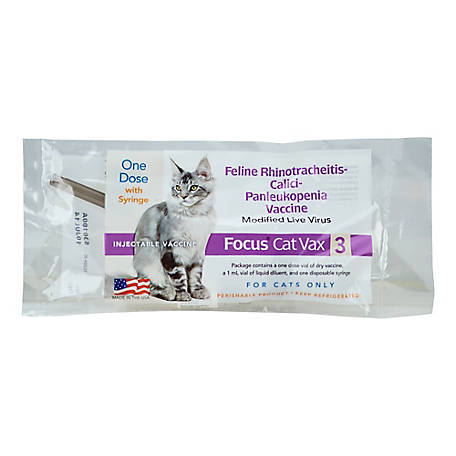
Focus Cat Vax 3 Cat Vaccine Injection 1 Dose With Syringe At Tractor Supply Co

Common Cat Vaccinations And What They Prevent With Schedule Lovetoknow
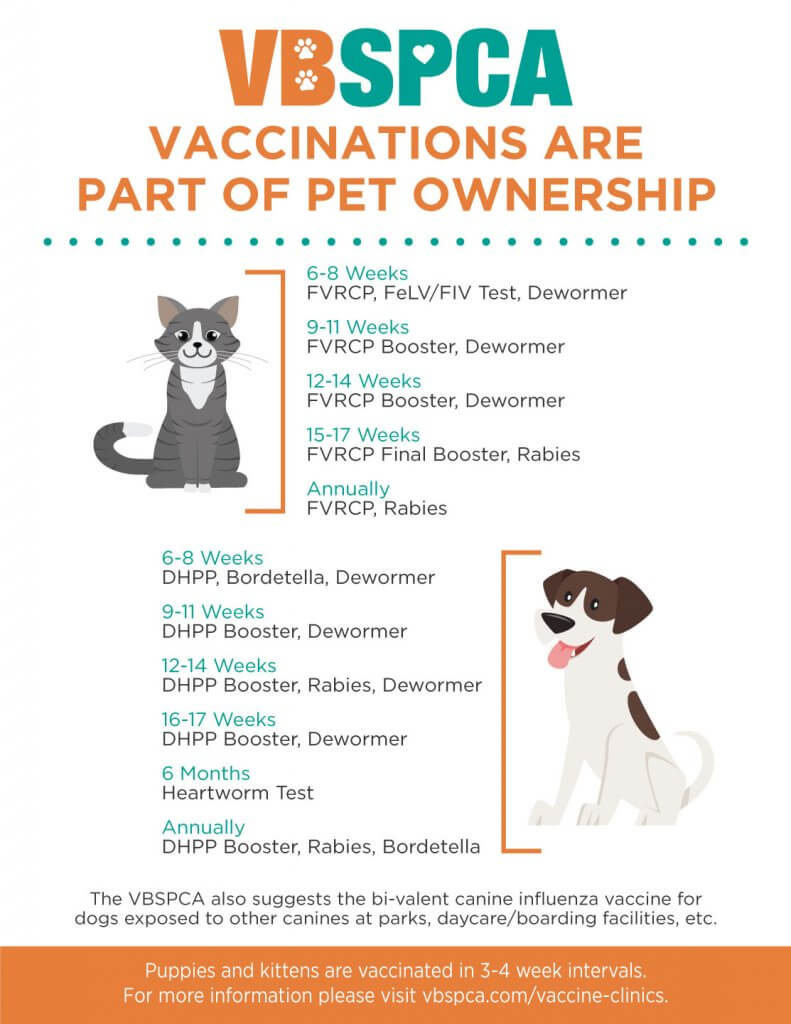
Vaccinations Virginia Beach Spca
/adult-cat-vaccination-schedule-4846632_V4-ff36ccb34d74410d9652b4307a26e8b3.png)
What Is The Average Adult Cat Vaccination Schedule
/adult-cat-vaccination-schedule-4846632_V4-ff36ccb34d74410d9652b4307a26e8b3.png)
What Is The Average Adult Cat Vaccination Schedule
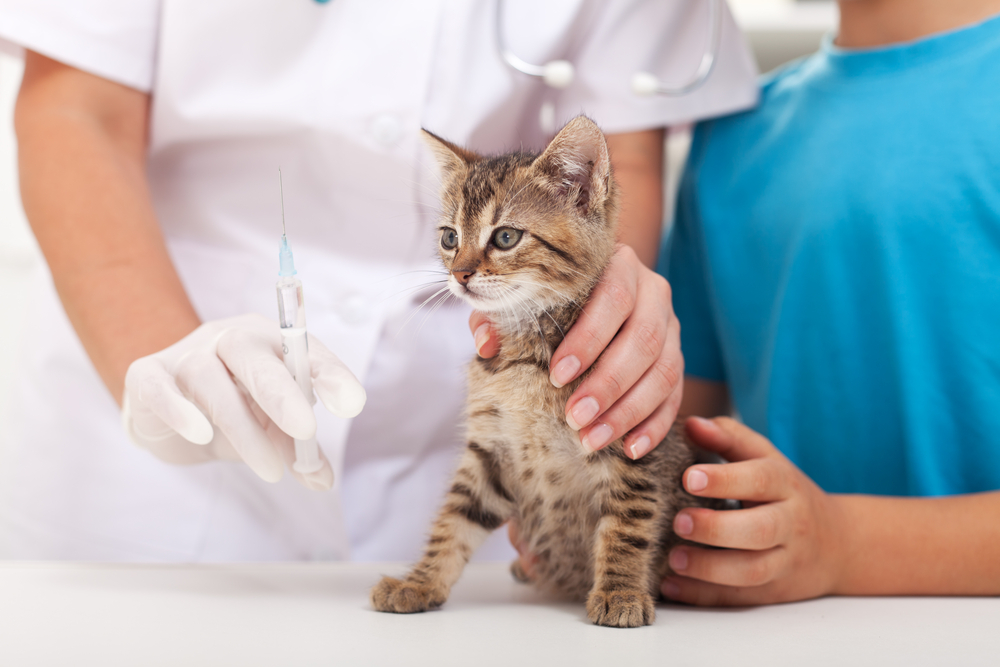
Vaccinations Veterinarian Serving Airmont Suffern Mahwah Nanuet Cat Care Clinic Of The Nyacks

Vaccinations Eighth Street Veterinary Care

Feline Leukemia Vaccine Felv For Cats Great Pet Care

Cat Leukemia Causes Signs Treatment Canna Pet

Vaccines Cabbagetown Pet Clinic
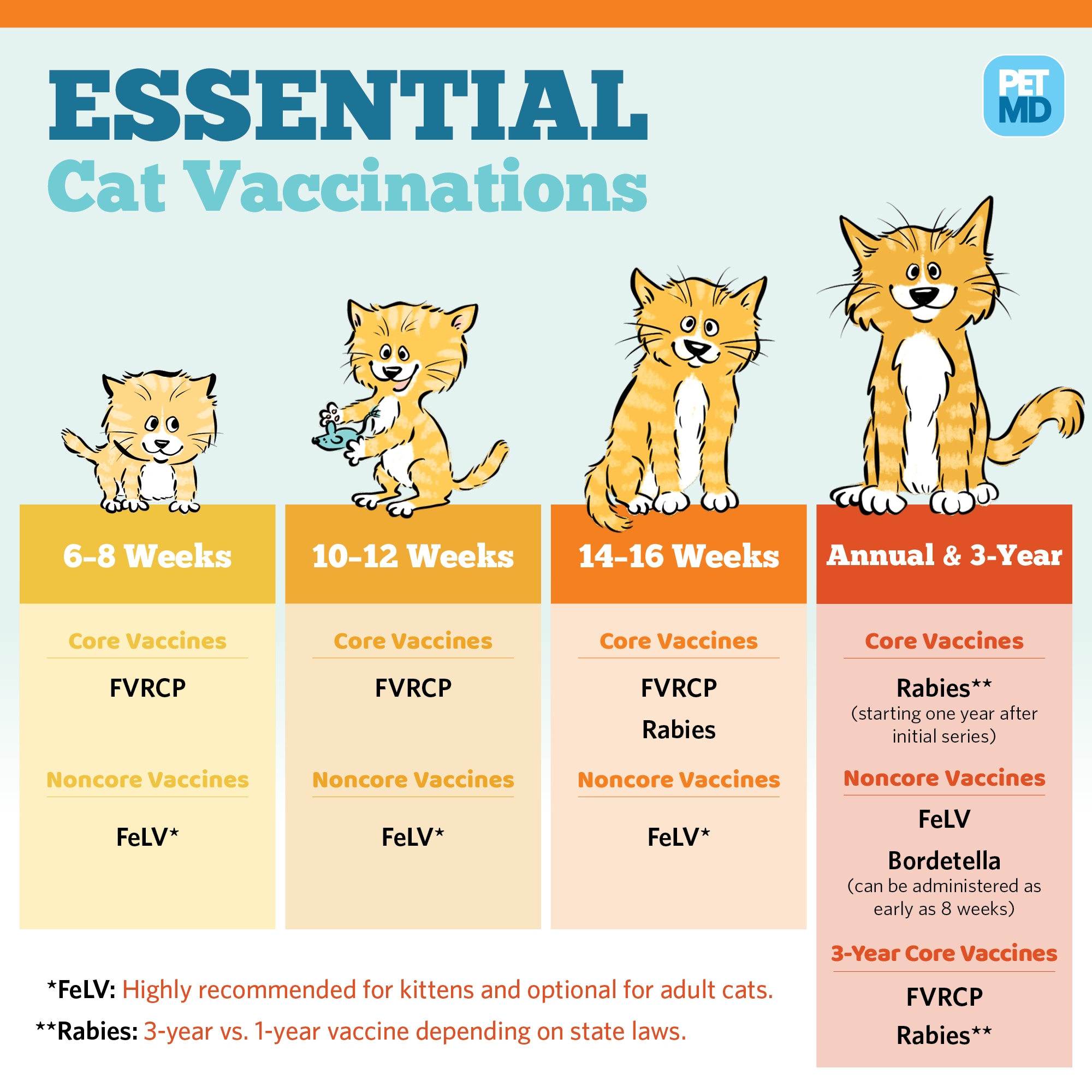
Kitten Vaccinations Vaccination Schedule For Cats Petmd
Feline Leukaemia Virus Infection
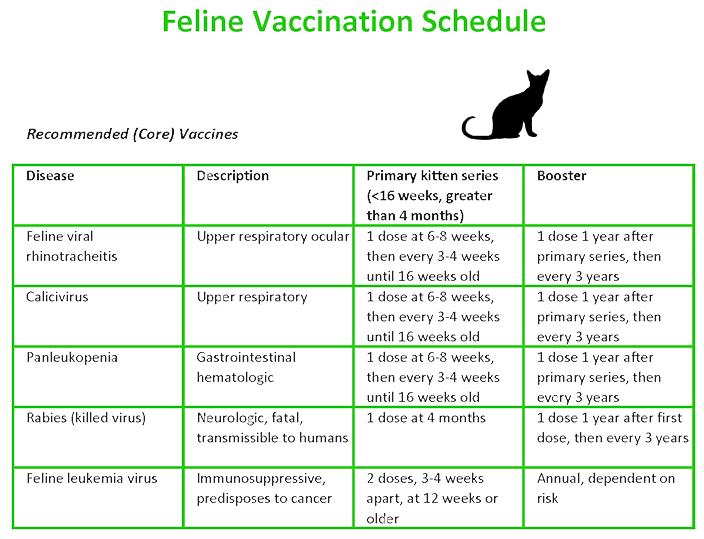
Animal Vaccination Services Kindness Counts Spay Neuter Clinic

First Vaccine For Cats Outlet 59 Off Www Vetyvet Com

Feline Leukemia Virus Vaccination Today S Veterinary Practice

Focus Cat Vax 3 Plus Felv Durvet

Pet Vaccinations Near Me 98225 Village Veterinary Hospital Bellingham Wa
